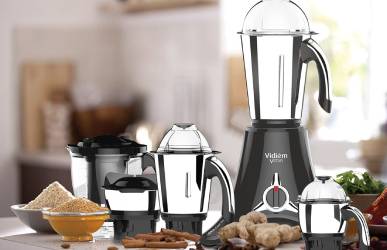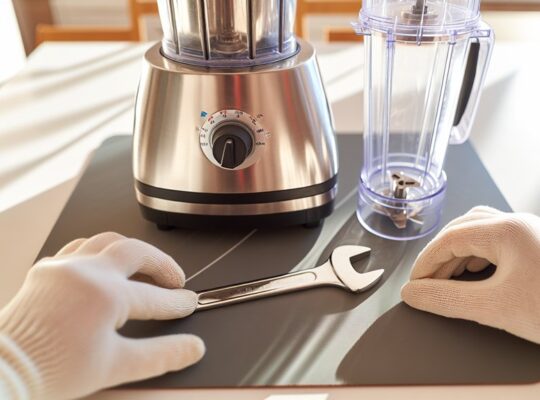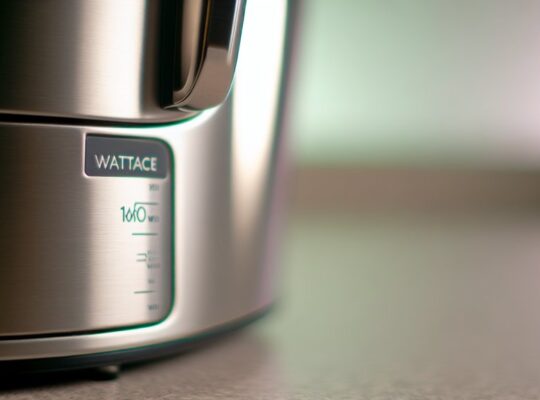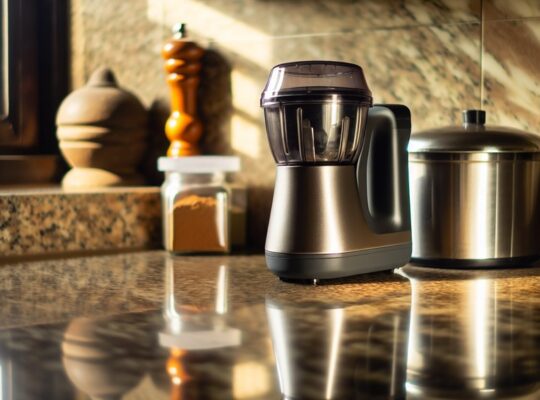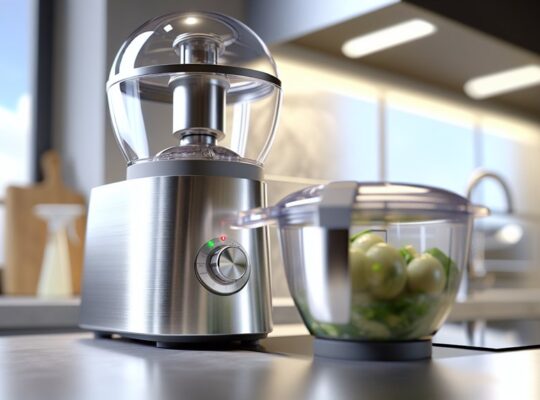If you notice a burning smell from your mixer grinder, act quickly and safely. Unplug the unit, let it cool, and inspect for scorch marks on the plug or cord. If the odor persists during no-load operation, stop using it and seek professional inspection to identify motor overloads or worn components. Document any signs of damage and plan for a thorough check, because a hidden fault could recur and pose safety risks you’d rather avoid.
Key Takeaways
- Unplug the mixer immediately and switch off the circuit to prevent shocks or fire.
- Inspect the plug, cord, and outlet for scorch marks or damage before any further use.
- If safe, let components cool, then test briefly with no load; stop if odor or heat returns.
- Check for overheating, abnormal noises, and signs of wear on motor housing, wiring, and blades.
- Document the incident and seek professional inspection or replacement per manufacturer guidance.
What Causes a Burning Smell in a Mixer Grinder
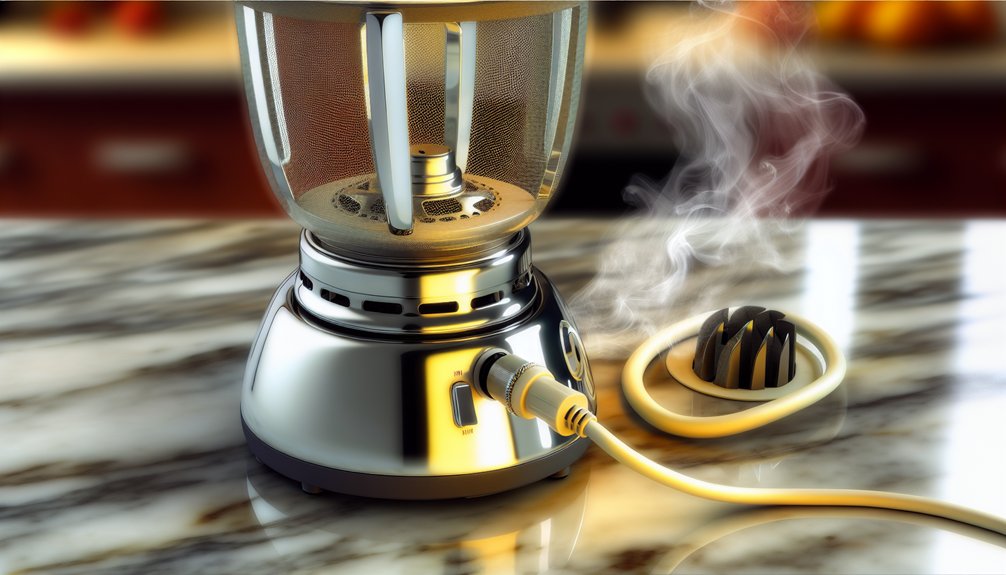
A burning smell from a mixer grinder usually indicates an electrical or mechanical fault that warrants immediate attention. You should stop using the appliance, unplug it, and disconnect the power source to prevent fire risk. Common causes include overloaded motors, worn bearings, and frayed or damaged wiring that overheats during operation. A burned insulation layer can emit acrid odors and reduce insulation integrity, increasing shock hazards. Misalignment of blades or grinding plates creates extra friction, overheating gears, and degraded performance. Build-up of flour, sugar, or moisture inside the housing can cause short circuits or thermal stress when the motor runs. Check cord integrity, plug condition, and the outlet’s capacity. If symptoms persist after basic inspection, seek professional service promptly to avoid further damage or danger. Stator protection
Is the Odor Harmless or a Sign of a Serious Problem
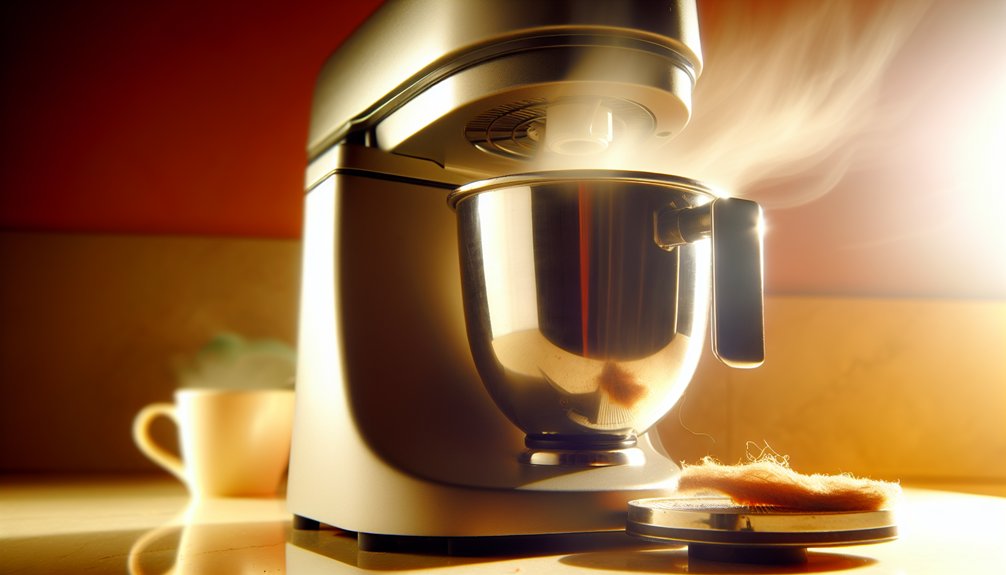
Determining whether the odor is harmless or indicates a serious problem hinges on the context and timing: if the smell appears only briefly during startup or after a sudden overload, it may be a temporary insulation or brush-related odor; however, any persistent or acrid, burnt scent signals potential damage to windings, bearings, or wiring that warrants immediate shutdown and inspection. You should assess duration, intensity, and release pattern: intermittent or fading smells are less alarming than continuous or escalating ones. Do not run the mixer grinder when the odor persists or strengthens. Check for visible signs of distress, abnormal heat, or smoke after cooling. If in doubt, unplug the appliance, avoid using water near electrical components, and contact a qualified technician for thorough testing. Prioritize safety and professional evaluation. Warranty assurance
Quick Immediate Steps to Take When You Smell Burning
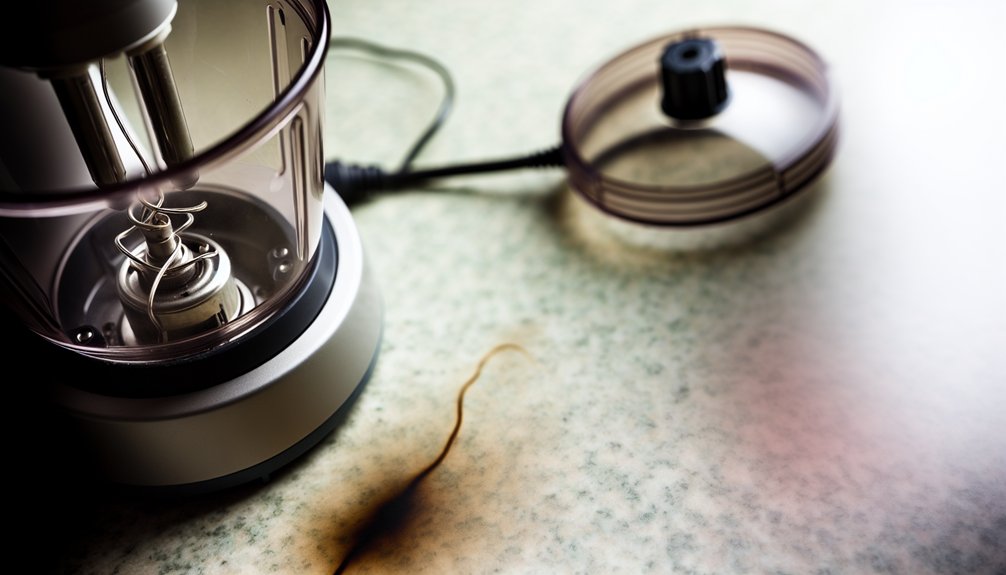
If you smell burning, act immediately: unplug the mixer grinder and switch off the circuit if safe to do so, then wait for components to cool before inspecting.
Follow these immediate steps:
1) Do not touch exposed components; keep hands away from hot surfaces and wiring.
2) Inspect the plug, cord, and outlet for scorch marks or damage before reinserting power.
3) When safe, test operation briefly with no load; if burning odor returns, discontinue use and seek professional service.
Note: do not attempt internal disassembly during a suspected burn. Prioritize safety, document the incident, and arrange a professional inspection before resuming normal operation. Use a certified technician for any repair or replacement.
Troubleshooting Tips to Identify Faulty Parts and Overheating
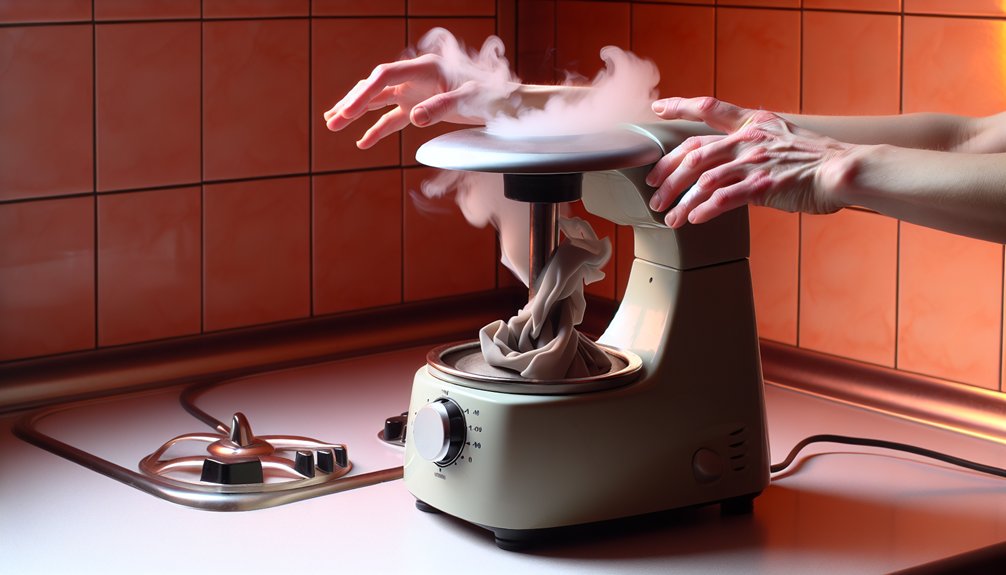
When troubleshooting, start by confirming whether overheating is localized to a component or widespread. Inspect power connections for looseness or corrosion, as poor contacts can cause heat buildup. Check the motor housing for discoloration, melted insulation, or burnt odor, which signal internal damage. Listen for abnormal grinding or buzzing sounds that point to bearing wear or gear misalignment. Use a multimeter to verify continuity on cords and switch contacts, and test the thermal cutoff or overheat sensor if accessible. Examine the blade assembly and housing for residue that could impede cooling or rotation. If you detect excessive heat, unplug the unit and allow it to cool before further checks. Do not operate with obvious signs of damage or missing safety components. Prioritize safety, and replace faulty parts promptly. Heating risk can indicate a failing component that requires professional inspection or replacement.
How to Prevent Burning Odors in the Future
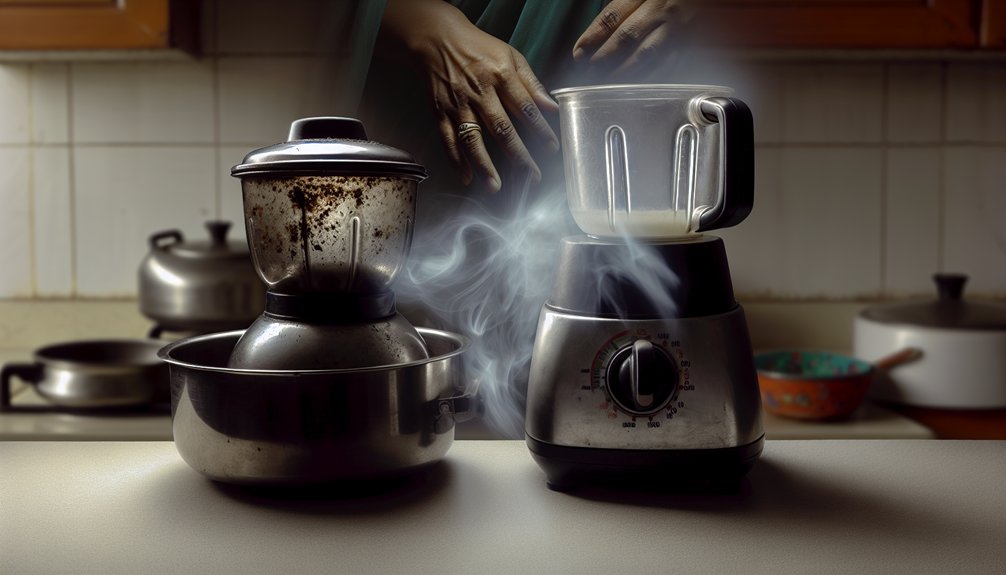
To prevent future burning odors, start by ensuring proper long-term operation and maintenance habits from the moment you finish troubleshooting. You’ll minimize risk by keeping components clean, ventilated, and properly lubricated where applicable. Regular checks help you catch wear before it becomes a smell or failure. Establish a daily inspection routine, noting unusual sounds, heat, or smoke immediately. Use only recommended accessories and avoid overloading the motor, especially when grinding hard materials. Schedule periodic parts replacement per manufacturer guidelines, avoiding temporary fixes. Adopt a documented maintenance plan, store the unit in a dry area, and unplug before any service. If odors persist, discontinue use and consult service. Safety-first discipline prevents repeated burning situations. Overload protection and other safety features from the knowledge base underline the importance of safeguarding the motor during use.
Frequently Asked Questions
Can a Burning Smell Occur With a Clogged Grinder Vent?
Yes, a burning smell can occur with a clogged grinder vent. If you notice it, unplug immediately, inspect for blockage, and allow cooling. Do not operate until vents are clear; consult a technician if fumes persist or damage is suspected.
Is the Smell Caused by Plastic Components Melting?
Yes, it can indicate plastic components melting, but don’t assume—smell could also stem from overheated motor windings or wiring insulation. Immediately unplug, inspect for melted parts, and consult a qualified technician to avoid fire risk. Stay cautious.
Are New Mixers More Prone to Burning Odors?
New mixers aren’t inherently more prone to burning odors, but initial smells can occur from lubrication, motor break-in, or safety wiring. If you notice heat, switch off, unplug, and inspect venting, wiring, and overload protection before reuse.
Should I Stop Using It if Smoke Appears Immediately?
Yes, stop using it immediately if smoke appears. Unplug, disconnect power at the wall, and keep a safe distance. Do not operate again until inspected by a qualified technician; replace damaged components and test for proper insulation. Safety first.
Can a Burnt Motor Be Repaired or Must It Be Replaced?
A burnt motor typically must be replaced rather than repaired. You should stop using the unit, unplug it, and consult a qualified technician or the manufacturer for replacement options and warranty guidance to guarantee safe operation.
